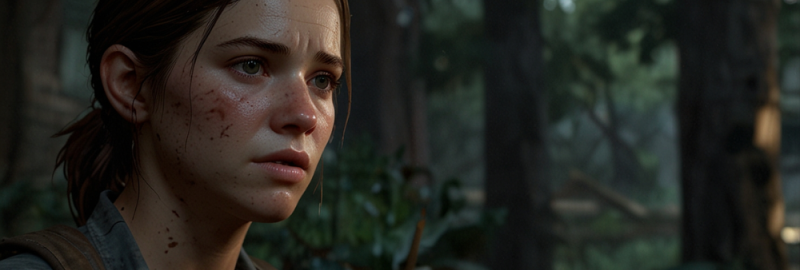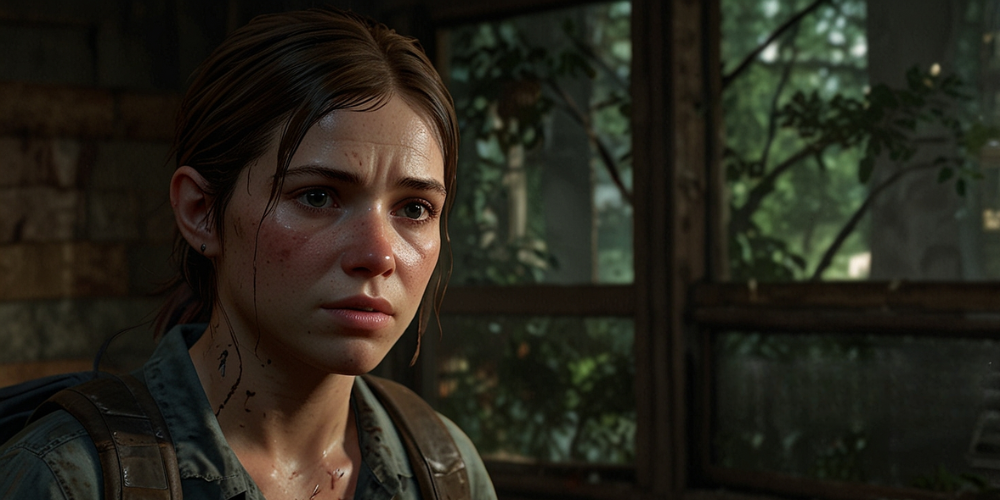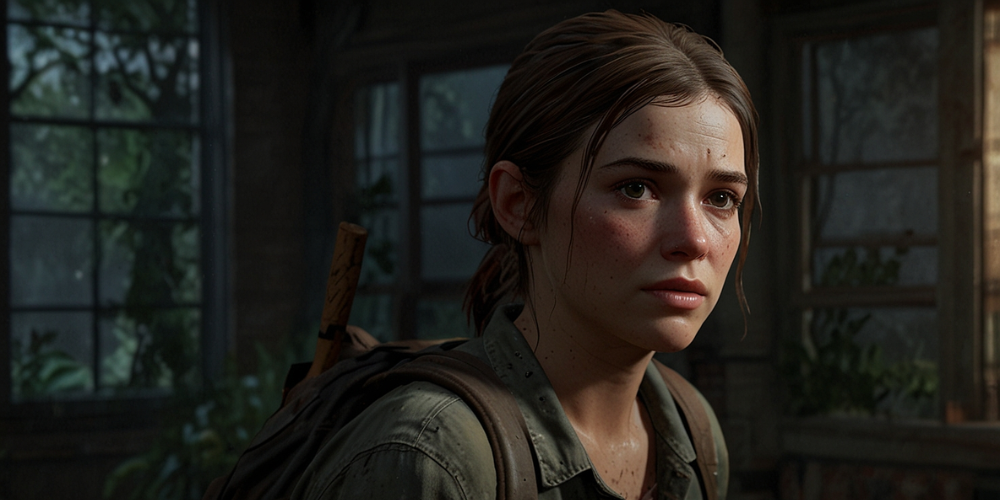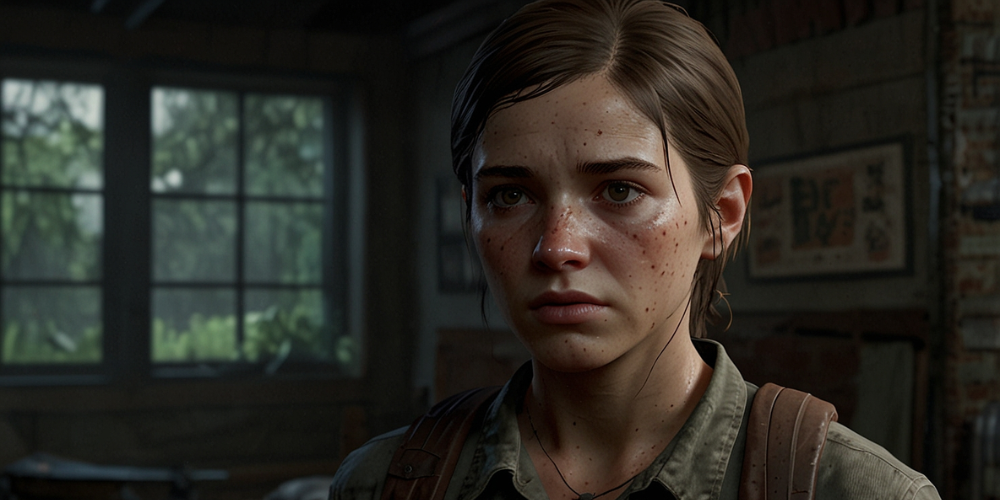
The world I inhabit in The Last of Us Part II is nothing short of brutal. It feels as though every location I traverse is drenched in danger, and each step I take could lead to my demise. I learned early on that survival requires more than just sheer luck; I need strategy, resourcefulness, and the instinct to remain vigilant. Walking through the desolate remnants of civilization, I can’t afford to be careless.
The Importance of Stealth
Stealth is my lifeline. I’ve discovered that my best chance at survival often lies in staying hidden. The enemies I face range from the infected to hostile human factions, each presenting its own set of challenges. I crouchlow to the ground, staying low and using the environment to my advantage. I’ve learned to move from cover to cover, making as little noise as possible. The sound of my footsteps on broken glass could mean the difference between life and death.
Listening Mode
One of the most valuable tools at my disposal is the listening mode. When I activate it, the world around me transforms--I can hear distant conversations and pinpoint the location of threats. It feels almost like an additional sense, allowing me to plan my next move rather than charging blindly into danger. Whenever I hear the guttural growls of the infected, it sends a cold chill down my spine, but I also feel a sense of control; I can either strategize or escape.
Crafting for Survival
The ability to craft items provides me with crucial advantages in this unforgiving environment. Every scrap I collect becomes a resource—whether it's crafting health kits, ammunition, or makeshift weapons. I often find myself rummaging through abandoned buildings, looking for supplies. I’ve learned to appreciate every bottle or can of food I come across. After all, even the simplest items can mean the difference between life and death during an encounter.

Weapon Variety and Customization
My arsenal is a reflection of the world’s chaos. I need various weapons to face the multiplicity of threats. From silent weapons like a bow for stealth kills to shotguns for close encounters, I choose my weapons based on the situation at hand. The customization options enhance their effectiveness; I can modify them with attachments for recoil reduction or improved accuracy. Each upgrade provides a sense of empowerment in a world that constantly seeks to strip me of it.
Resource Management
Every bullet counts, and it’s vital to manage my resources effectively. I can’t afford to waste ammunition on every enemy I face. Studying enemy movements and planning my attacks ensures that I utilize my resources wisely. The scarcity of supplies forces me to think critically about when to engage in combat and when to retreat. Sometimes, running away is the best strategy, allowing me to conserve precious materials.
The Role of Allies
Interestingly, the game emphasizes the importance of companionship. My allies offer support, sharing supplies and providing back-up during intense encounters. Moments of respite with them remind me that even in a world that feels devoid of humanity, bonds can still be forged. I appreciate their presence during the most harrowing times—together, we increase our chances of making it through another day.

Dealing with Scavengers
Encounters with human scavengers introduce a different dynamic to my survival experience. Unlike the infected, scavengers think and strategize. They set traps and ambushes, making each confrontation unpredictable. I’ve had to adapt my tactics; it’s no longer just about stealth but also about outsmarting a cunning enemy. It often feels like a chess match where every move has to be calculated.
Environmental Hazards
The environment itself poses its own dangers. Fallen debris, hostile wildlife, and treacherous terrain force me to stay alert. I can't always depend on my weapons; navigating the landscape while identifying potential traps or hazards is part of the battle. I’ve learned to navigate carefully, and trust my instincts when it comes to which paths to take. Each wrong turn could lead to ambush or worse.
The Emotional Toll of Survival
Survival isn't just a physical challenge; it weighs heavily on my psyche. Each encounter lingers with me, and the choices I make can lead to profound emotional consequences. I grapple with guilt and grief as I navigate through loss and betrayal. The game does a remarkable job of portraying the psychological burden this world places on me. I find myself questioning my actions and wondering about the morality behind the choices I face.
Exploration and Discovery
While survival dominates my thoughts, the environment invites exploration as well. I often find myself wandering into buildings, searching for notes left behind. These little snippets of life before the fall add depth to my experience. They tell stories of those who came before me and serve as reminders of what has been lost. In some ways, these explorations provide solace in an otherwise bleak world.
Combat Strategy
When combat is unavoidable, I find that integrating melee and ranged attacks is essential. Charging in with brute force often leads to errors, so I focus on employing a combination of tactics. Using a mix of stealth to thin out numbers and engaging head-on allows me to adapt to the dynamics of the fight. Quick dodges and strategic positioning allow me to gain the upper hand, even when the odds seem insurmountable.

Adapting to the Infected Threats
The infected present another layer of complexity; I’ve learned to recognize their different types. Clickers are perhaps the most terrifying because of their acute hearing, but I’ve also encountered brutal brutes that require entirely different strategies. Understanding their behaviors and weaknesses is crucial to my survival. This depth of knowledge transforms encounters from futile attempts to exhilarating escapes.
The Challenge of Resource Scarcity
Sustaining myself within this broken world means always being aware of the scarcity around me. Looting is not just about gathering materials; it’s about the constant anxiety of what I might not find next time. I regularly have to reassess my stock, deciding if I should create a medkit or craft ammo for my weapon. Each decision weighs heavily, a balancing act between urgency and necessity.
Understanding the World Through Lore
The lore that unfolds through my journey adds layers of understanding about this ravaged society. I stumble upon journals, artifacts, and conversations that shed light on how humans have coped with this apocalypse. The backstories of individuals create emotional ties, making it easier to empathize with the struggles and losses they faced. This storytelling intertwines seamlessly with my quest for survival.
Navigating Difficult Choices
The choices I face often lead to moral dilemmas. Each decision I make can affect the course of my journey and the well-being of those around me. The game doesn’t shy away from showcasing the darkness of humanity, and I find that I must grapple with these decisions long after they’ve been made. My sense of morality is challenged, pushing me to reflect on what it truly means to survive in a world that often feels devoid of hope.
The Impact of Human Connections
Despite the grimness surrounding me, the game beautifully illustrates the significance of connections. My relationships with other characters shape my entire experience, reminding me that even in a world governed by chaos, there is still room for compassion and understanding. These moments of vulnerability amid the harshness linger in my thoughts, reminding me of why I fight to survive.